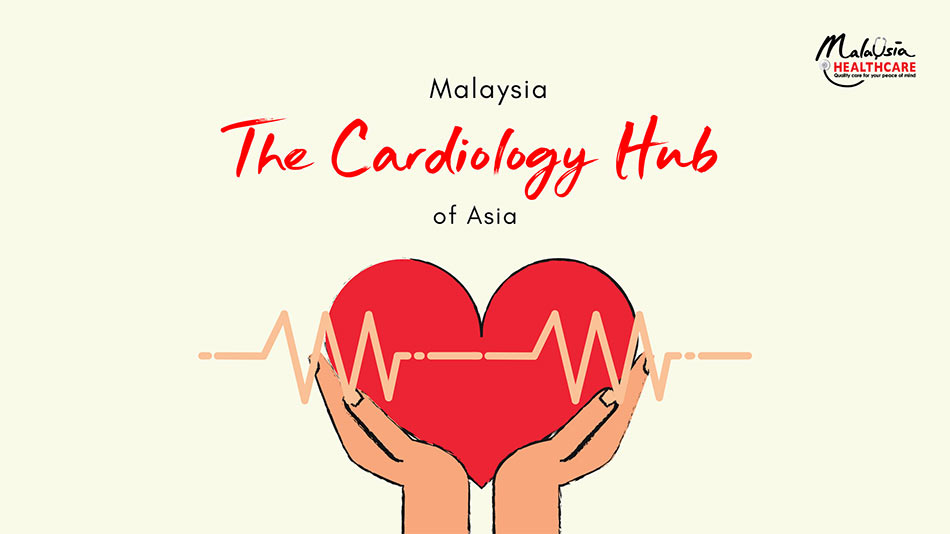Medical Care , Health & Wellness , Cardiology (Heart)
The Heart Matters – Why Detection is Better Than Prevention
The best way to detect coronary heart disease (CHD) is by being well-informed. Although preventive measures such as exercising, practicing a healthy diet, and avoiding smoking is good practice, undergoing a comprehensive diagnostic test can give you a clearer picture of your cardiovascular health, sometimes even before the symptoms manifest themselves.

Since the cardiovascular system is impressively sophisticated, the diagnosis of CHD typically requires more than one screening method at a time. The standard procedure for screening for heart disease includes an assessment of your risk factors, family history, and also a blood test. If the doctor suspects you have CHD, more diagnostic procedures can be recommended, such as a stress test or a chest x-ray.
In Malaysia, other than the common screening methods mentioned, advanced diagnostics are also available. An experienced medical practitioner can help to determine whether any of these tests are relevant to you:
Electrocardiogram (EKG/ECG)
ECG is a painless test that detects and records the heart’s electrical signals, allowing your doctor to identify any irregularities in your heart’s rhythm and structure. The ECG can be done while resting or during exercise (stress electrocardiogram).
Holter Monitoring
If an ECG is unable to distinguish more detailed readings, a portable Holter monitor that is worn from 24 to 72 hours allows for subtler heart rhythm patterns to be detected.
Echocardiogram
By employing ultrasound technology over the chest area, an overall image of your heart’s structure and function is recorded for further inspection.
Cardiac catheterisation
Using dye and x-ray imaging, the pressure of the heart chambers, heart blood flow and vessel conditions are assessed for any inconsistencies. In this invasive test, a catheter is inserted into an artery, and dye can be used to see blood flow through your heart to check for abnormalities.
Cardiac computerised tomography (CT) scan
Multiple X-ray images are composited digitally to produce cross-sectional views of the heart. Cardiac CT may also use contrast dye to visualise the heart anatomy and circulation.
Cardiac magnetic resonance imaging
Strong magnets and radio waves are used to create an image of the heart without the use of radiation (X-ray). This test provides detailed imagery of the heart and blood vessel from different angles. It is often used for further information after an echocardiogram or a CT scan.
Myocardial Perfusion Scan
Using a small dose of a radioactive chemical substance, this scan produces images that explain how well blood can flow to the myocardium (muscle of the heart). It is often performed after light exercise to determine the heart muscle’s performance under stress.
The advent of an aging society has made heart disease one of the most pertinent health issues in Asia. The good news is, with diagnostic technology advancing by leaps and bounds, you can remain vigilant and prepared while continuing to enjoy a happy, healthy life well into your golden years.
For more information on Malaysia Healthcare and cardiology treatments available, visit www.malaysiahealthcare.org
References:
Related Articles
Health & Wellness
How to Deal with Obesity & Diabetes?
The prevalence of obesity in the world have continued to increase significantly. It is estimated by WHO that 39% of adults aged 18 years and over were overweight in 2016, and 13% were obese.
Read moreMedical Care
Blood delivery drone due to become world’s fastest
New-generation drones slash delivery time of life-saving blood products and medicines in hard-to-reach areas in Rwanda
Read moreMedical Care
Better use your nose
In the long term, mouth breathing might lead to several complications
Read moreLatest Articles
Medical Care
Clinical Exercise Physiologist (CEP): The Emerging of Exercise is Medicine
How Exercising can be a Medicine
Read moreMedical Care
Reversing type 2 Diabetes: Embracing Hope and Determination
Experience the remarkable journey of Ash and his grandfather Atok as they conquer type 2 diabetes through unconventional methods, showcasing the power of love and determination over adversity.
Read moreMedical Care
Bladder Cancer: What You Need to Know
Empower yourself with our comprehensive guide to bladder cancer. Explore symptoms, diagnosis, treatments, and supportive resources to safeguard your health.
Read more